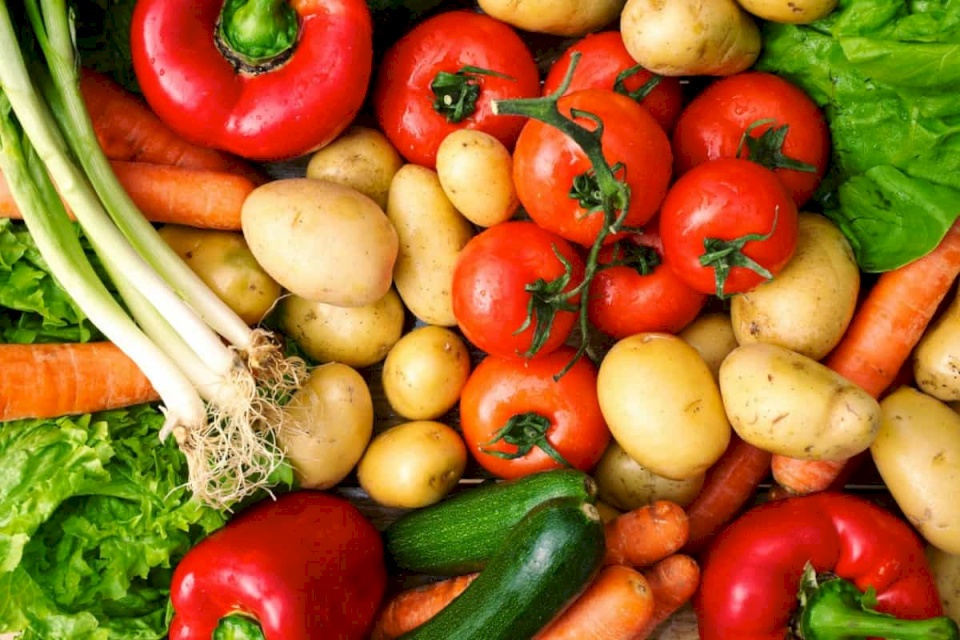
Which Vegetables Are More Nutritious... Fresh or Frozen?
SadaNews - Many people believe that frozen vegetables are less nutritious than fresh ones, but research shows they often contain similar amounts of vitamins and minerals. Since there are those who do not consume enough fruits and vegetables, experts recommend increasing intake in any form.
Registered dietitian Michael Lagouras told Verywell Health: "Fresh and frozen vegetables are similar in terms of nutritional value. I advise focusing on what suits the individual and their family based on factors such as cost, ease of use, and personal preference, with the main goal being to increase vegetable consumption in general."
How do frozen vegetables maintain their nutrients?
Commercially available frozen vegetables are harvested at their peak ripeness, blanched, and quickly frozen in a process that preserves their nutritional quality.
Blanching eliminates some bacteria and deactivates enzymes that could harm the nutritional content, texture, and flavor of the vegetables. After blanching, the vegetables are placed in an ice bath to stop the cooking process, then drained, dried, and frozen.
Food scientists have determined the optimal blanching time for various vegetables to ensure minimal nutrient loss and enzyme deactivation while being careful not to cook them.
Processing vegetables is not a bad thing
Some people are hesitant to eat frozen vegetables because they are processed before reaching the store. However, registered dietitian Sarah Al-Nakib told Verywell Health that not all food processing leads to negative effects or poses risks.
Frozen vegetables undergo minimal processing to remove inedible parts and extend shelf life. This level of processing does not radically change the original product and is not associated with negative health effects.
Sarah Al-Nakib added: "Processing can actually preserve nutritional quality by delaying the degradation process that fruits and vegetables naturally undergo after harvest." She continued: "Slowing down the degradation process reduces the likelihood of losing important water-soluble vitamins, such as Vitamin C and B vitamins, which are often more sensitive to factors like heat and can oxidize over time."
Tips for buying and storing frozen vegetables
Freezing helps preserve the nutritional value of products, as many fresh vegetables begin to lose their nutrients after harvest. If you want to freeze your own vegetables, it is important to start this process shortly after purchasing or harvesting fresh products.
Professor of health and nutrition Kelly Conkle stated to Verywell Health: "You cannot improve the quality of a bad product by freezing it. If fruits and vegetables have spoiled, freezing will not help; it will make things worse." She added: "It’s better to start with a ripe, high-quality product that is edible."
Whether you buy frozen vegetables or freeze them yourself, check for ice crystals in the package; this may indicate mishandling or temperature issues in the freezer.
Dr. Kumar Malikaragunan, a professor of food science, said: "In the case of freezing, most quality and nutritional value loss can occur due to recrystallization, which is a process where the product undergoes cycles of freezing and thawing."
Frozen vegetables can be kept in the freezer for 8 to 12 months when stored at a steady temperature of 0°F (approximately -17.8°C) or lower.
According to Malikaragunan, leaving the freezer door open for an extended period or repeatedly taking frozen vegetables in and out can cause freezing and thawing cycles that damage the quality and nutritional value of the vegetables.

Interactive Digital Photo Frame... Suited to Your Personality and Environment

Women or Men... Who Views Artificial Intelligence as More Dangerous?

120,000 Ready to Assist Him... Artificial Intelligence Employs Humans to Perform Tasks It...

Study: The Keto Diet Improves Symptoms of Treatment-Resistant Depression

Daily Pills for the Prevention of Heart Disease and Strokes

A Smart Way to Quickly and Efficiently Diagnose Drug Addiction

Social Media Recipe... Does Grape Juice with Activated Charcoal Succeed in Treating Gastro...

